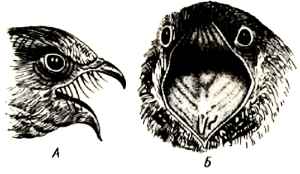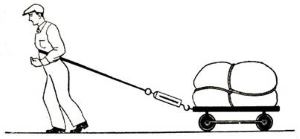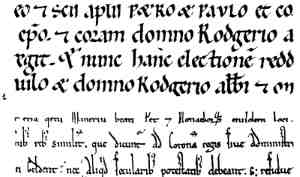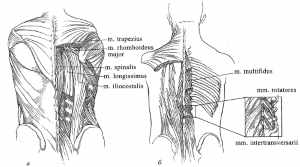Growth of the Spoken Standard
§ 342. As shown above the Written Standard had probably been fixed and recognised by the beginning of the 17th c. The next stage in the growth of the national literary language was the development of the Spoken Standard, The dating of this event appears to he more problematic.
Naturally, we possess no direct evidence of the existence of oral norms, since all evidence comes from written sources. Nevertheless, valuable information has been found in private letters as compared to more official papers, in the speech of various characters in 17th and 18th c. drama, and in direct references to different types of oral speech made by contemporaries.
It seems obvious that in the 18th c. the speech of educated people differed from that of common, uneducated people — in pronunciation, in the choice of words and in grammatical construction. The number of educated people was growing and their way of speaking was regarded as correct. Compositions on language gave diverse recommendations aimed at improving the forms of written and oral discourse. Some authors advised people to model their speech on Latin patterns; others banned borrowing mannerisms and vulgar pronunciation. These recommendations could only be made if their authors were — or considered themselves to be — in a position to distinguish between different forms of speech and label them as "good" or "bad". Indirectly they testify to the existence of recognised norms of educated spoken English.
§ 343.The earliest feasible date for the emergence of the Spoken Standard suggested by historians is the late I7th c. Some authorities refer it to the end of the normalisation period, that is about a hundred years later — the end of the 18th c. The latter date seems to be more realistic, as by that time current usage had been subjected to conscious regulation and had become more uniform. The rules formulated in the prescriptive grammars and dictionaries must have had their effect not only on the written but also on the spoken forms of the language.
The concept of Spoken Standard does not imply absolute uniformity of speech throughout the speech community — a uniformity which, in fact, can never be achieved; it merely implies a more or less uniform type of speech used by educated people and taught as "correct English" at schools and universities. The spoken forms of the language, even when standardised, were never as stable and fixed as the Written Standard. Oral speech changed under the influence of sub-standard forms of the language, more easily than the written forms. Many new features coming from professional jargons, lower social dialects or local dialects first entered the Spoken Standard, and through its medium passed into the language of writing. The Written Standard, in its turn, tended to restrict the colloquial innovations labelling them as vulgar and incorrect and was enriched by elements coming from various functional and literary styles, e.g. poetry, scientific style, official documents. Between all these conflicting tendencies the national literary language, both in its written and spoken forms, continued to change during the entire New English period.
§ 344.The geographical and social origins of the Spoken Standard were in the main the same as those of the Written Standard some two hundred years before: the tongue of London and the Universities, which in the turbulent 17th c. — the age of the English Revolution, further economic progress and geographical expansion — had assimilated many new features from a variety of sources. Intermixture of people belonging to different social groups was reflected in speech, though the rate of changes was slowed down when the norms of usage had been fixed. The flourishing of literature enriched the language and at the same time had a stabilising effect on linguistic change.
Thus by the end of the 18th c. the formation of the national literary English language may be regarded as completed, for now it possessed both a Written and a Spoken Standard.
Дата добавления: 2016-05-31; просмотров: 3290;










